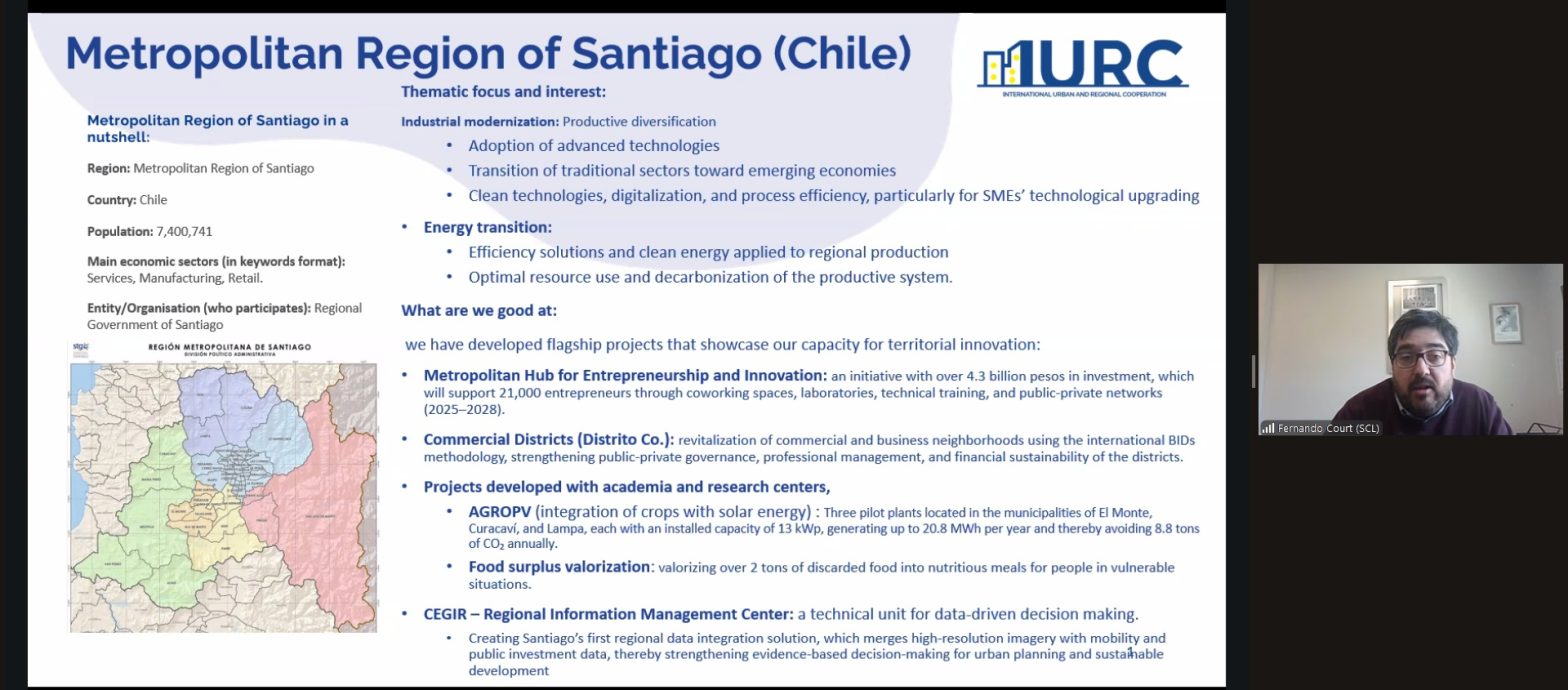On 17 September 2025, 49 leaders and technical experts from Europe, Latin America & Caribbean (LAC) convened for the first session of the IURC LAC Region-to-Region Cooperation Program, focusing on agrifood innovation and industrial modernization. In the current phase, IURC pilot regions from the EU and Latin American countries will cooperate in 4 areas: agrifood innovation, industrial modernization, energy, and sustainable blue economy, with digital transformation and resilience and cross-thematic objectives.
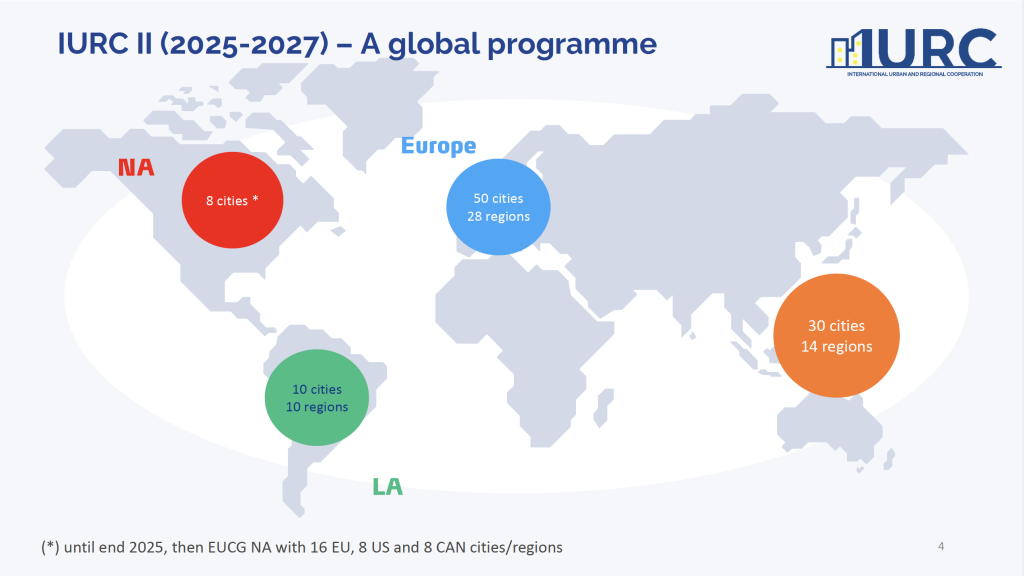
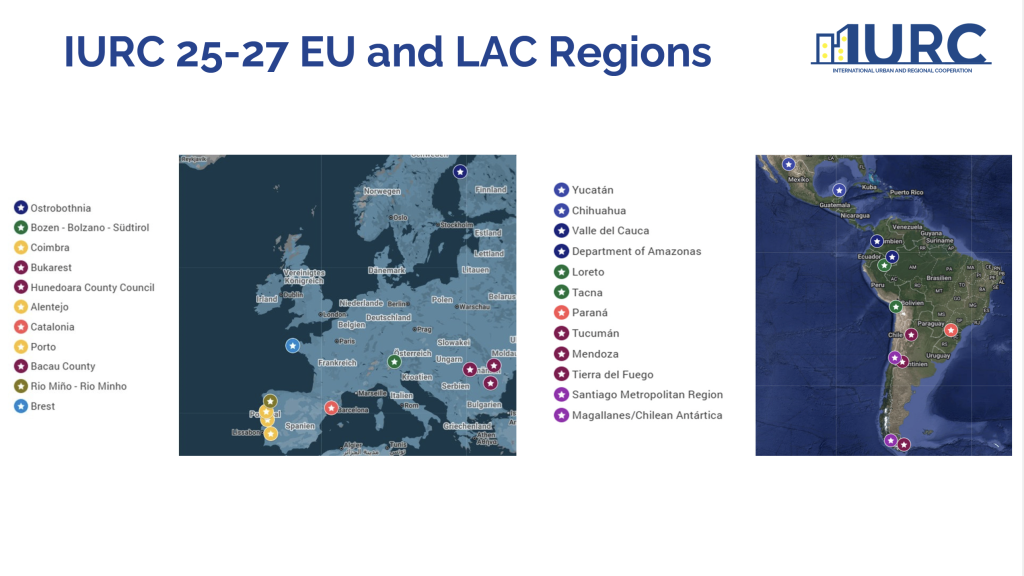
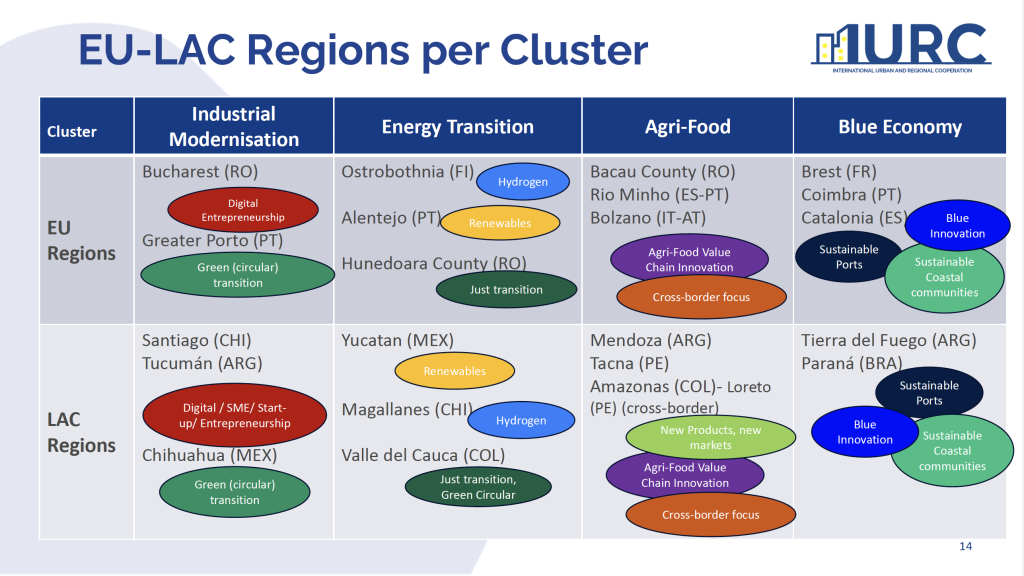
Thematic Landing
IURC Region-to-Region Coordinator Silke Haarich moderated the meeting and introduced the regional innovation component to participants in the new IURC phase (2025-2027). She underlined the importance of regional innovation in the EU cohesion policy and referred to earlier regional innovation exchanges with Latn American countries, within DG REGIO’s international cooperation framework. European regional innovation policy, she stated, has inspired many other countries, particularly through the “Smart Specialisation Strategies” (S3) approach, making Europe a key hub for experimentation and interregional learning.
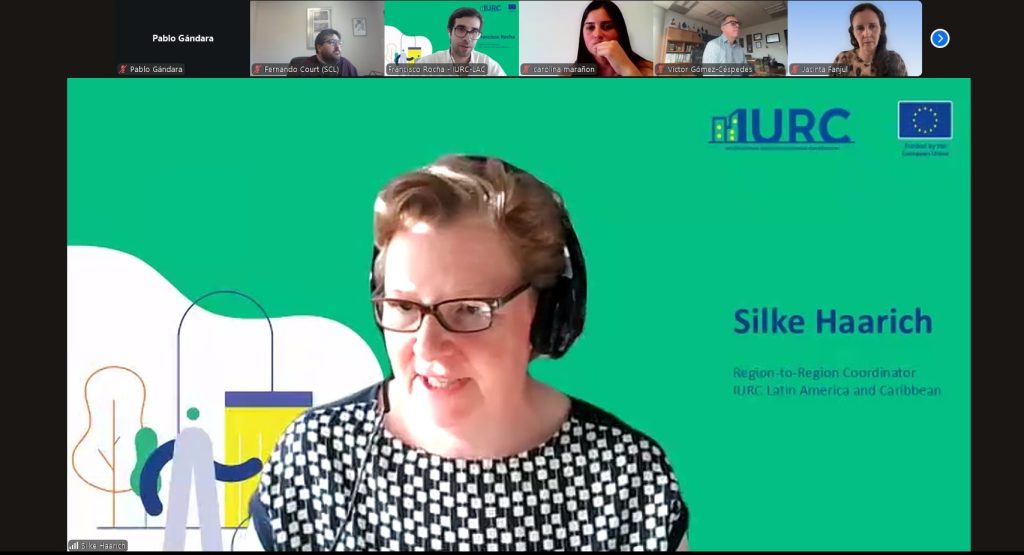
Francisco Rocha, IURC Regional Cluster Manager, presented the thematic cluster of Industrial Modernization and their S3 strategies to modernise their industry base through and in collaboration with other regions, regarding Green Transition, Global Competitiveness and Digital Transition. Alexandra Carcu of the Regional Intermediate Body for European Programs, Bucharest, Romania, complemented the discussion by sharing initiatives on SME digital upskilling, workforce development, and green technology adoption. Waste management innovation was elaborated by Rui Rodrigues of LIPOR, showcasing advanced prevention and training solutions.
Industrial symbiosis was highlighted by Victor Gómez-Céspedes of Chihuahua, Mexico and Abraham Redekop, Energy Agency of the State of Chihuahua, who demonstrated how their platform connects companies to optimize energy and resources. Fernando Court, Head of Economic Development, Regional Garden of Santiago, focused on territorial innovation and SME support, emphasizing energy transitions and inclusive ecosystems.
The Agri-Food cluster segment was introduced by Kirsti Hagemann of IURC for the thematic cluster of agri-food, outlined modernization of agricultural production, while Carolina Marañon, Undersecretary of International and Business Relations of Tucuman, Argentina, presented her province with strong agricultural traditions and growing technology capabilities, highlighting their Technology Cluster and plans for industrial modernization.
Federico Morabito, Coordinator of the Wine Cluster, Mendoza, Argentina identified cluster development in the wine sector. Robert Infantas of Tacna, Peru, described regional public investment in agricultural production chains.
Contributions on sustainable food systems and low-carbon technology came from Claudia Juliana Dulcey Cala, Secretary of Agriculture and Environment for the Department of Amazonas, Colombia highlighted their focus on sustainable and resilient food systems, energy transitions, and innovative low-carbon technologies. Irene Covi of the Interreg Italy Austria programme discussed their cross-border cooperation program with Austria, emphasizing community-led local development and their participation in the IURC initiative. Luis Ulloa from the EGTC Mino River grouping of municipalities and provinces presented their cross-border cooperation between Portugal and Spain, focusing on agro-industrial development and sustainable commercial markets.
The session concluded with announcements of upcoming activities, including the upcoming Smart City Expo World Congress in Barcelona, and prepared the ground for next week’s discussions focused on clean energy and the blue economy.
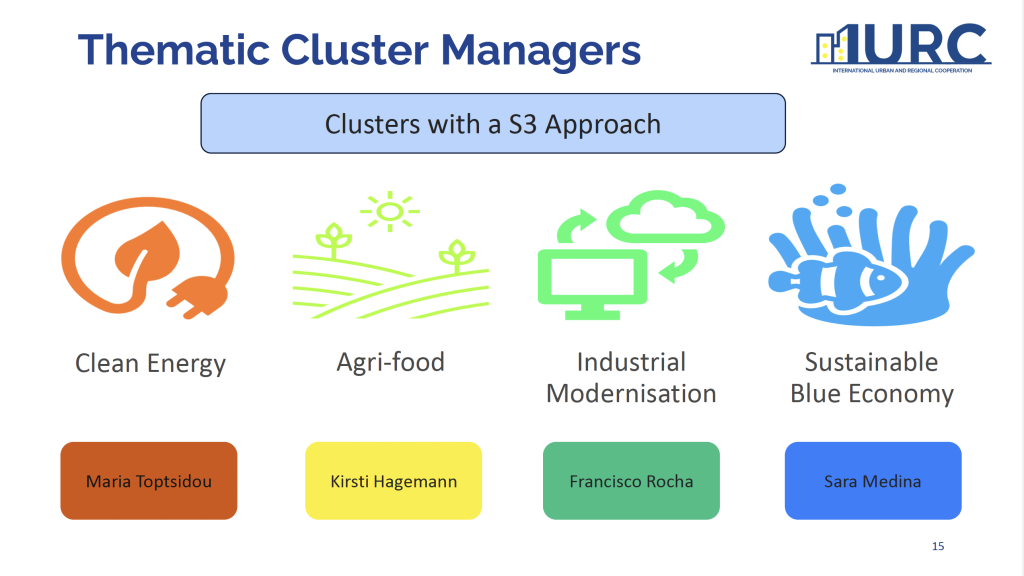
| Cluster | EU Regions | LAC Regions |
| Industrial Modernisation | Bucharest (RO), Greater Porto (PT) | Santiago (CL), Tucumán (AR), Chihuahua (MX) |
| Clean Energy | Ostrobothnia (FI), Alentejo (PT), Hunedoara County (RO) | Yucatán (MX), Valle del Cauca (CO),Magallanes (CL), |
| Agri-Food | Bolzano (IT), Rio Minho (ES-PT), Bacau County (RO) | Mendoza (AR), Tacna (PE), Amazonas (CO), Loreto (PE) |
| Blue Economy | Brest (FR), Catalonia (ES), Coimbra (PT) | Tierra del Fuego (AR), Paraná (BR) |
Why Regional Innovation Matters
Smart Specialisation (S3) helps regions leverage unique strengths to boost innovation-driven growth.
Through IURC, regions collaborate on:
• Cross-border partnerships (EU-LAC knowledge exchange)
• Green transition (decarbonisation, circular economy)
• Digital transformation (Industry 4.0/5.0, AI, reskilling)
• Resilient agri-food systems (sustainable value chains, bioeconomy)
“Regional innovation is not just about technology—it’s about people, governance, and inclusive growth.”
— Joint Research Centre, EU
Spotlight: Participating Regions & Their Strengths
Industrial Modernisation
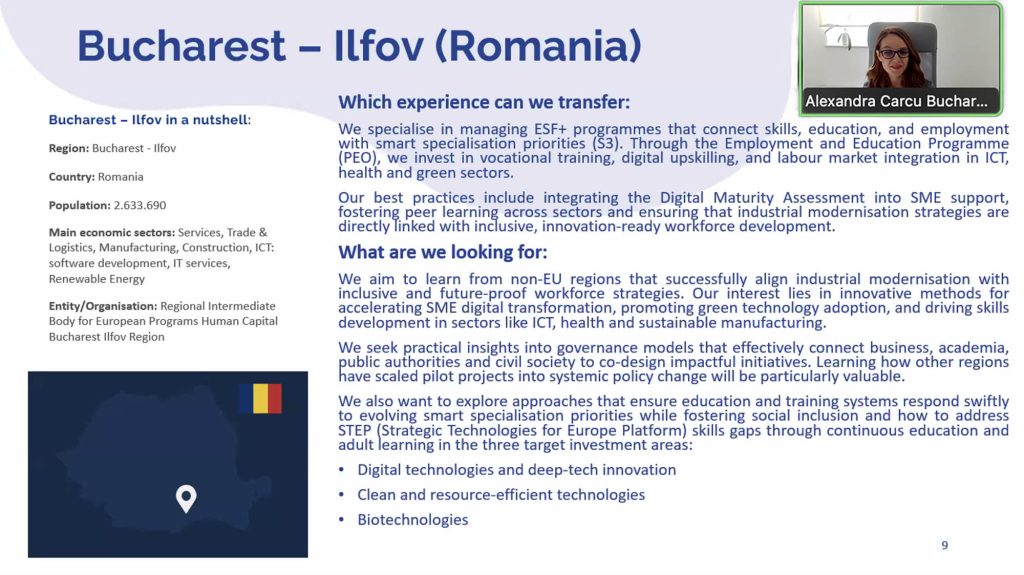
Bucharest-Ilfov (Romania)
Focus: Digital upskilling, vocational training for ICT, health, and green sectors.
Flagship Projects:
MICROFUTURE: €99.4M financial instrument for 647 social enterprises (2023–2027).
4.0READY: Supported 2,900 SMEs in Industry 4.0 readiness.
Seeking: Partners for SME digital transformation and green tech adoption.
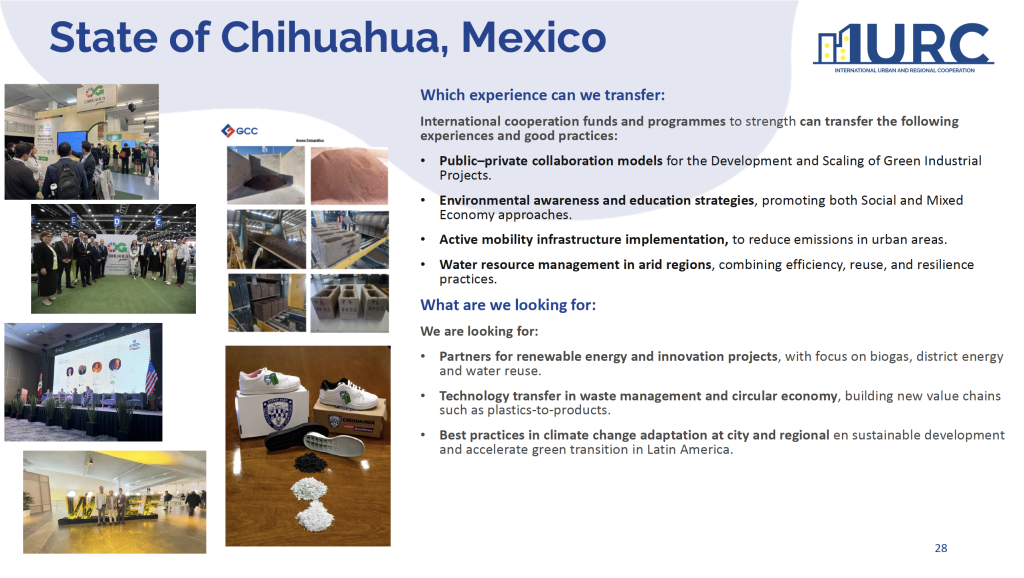
Chihuahua (Mexico)
Focus: Circular economy, industrial symbiosis, and water management in arid regions.
Tools: SYNER: Digital platform for 13,488 industrial synergies.
GHG Calculator: Tracked emissions for 166 companies.
Offering: Public-private collaboration models for green projects.
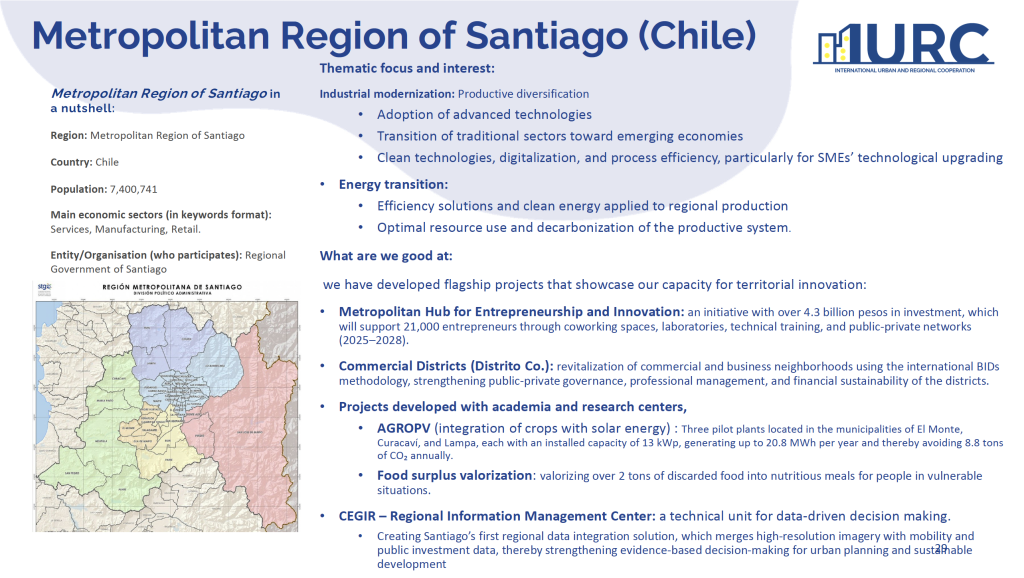
Santiago Metropolitan Region (Chile)
Focus: Entrepreneurship hubs, agri-PV (solar + crops), and circular economy.
Flagship Projects:
Metropolitan Hub for Innovation: Supporting 21,000 entrepreneurs (2025–2028).
AGROPV: 3 pilot plants generating 20.8 MWh/year, avoiding 8.8 tons CO₂/year.
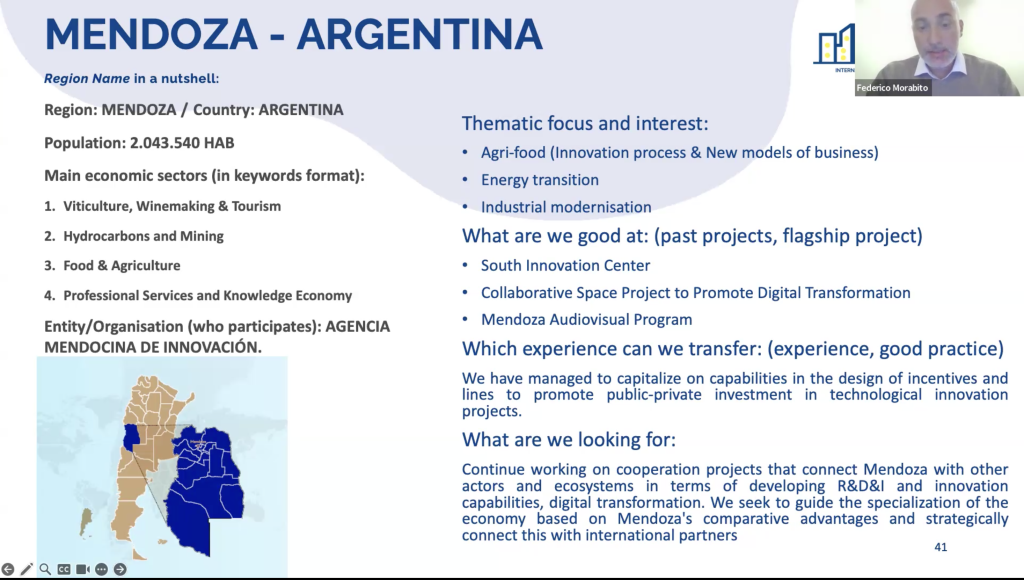
2. Agri-Food Innovation
Mendoza (Argentina)
Focus: Wine tourism, hydrocarbons, and agri-tech.
Strengths:
South Innovation Center: Promotes digital transformation in agri-food.
Public-private investment lines for R&D&I.
Seeking: Partners for international R&D collaboration.
Amazonas (Colombia) & Loreto (Peru)
Focus: Sustainable food systems, forest conservation, and indigenous-led innovation.
Flagship Projects:
Trinational cooperation (Brazil/Peru/Colombia) on non-timber forest products.
Conservation agreements with indigenous communities.
Seeking: Low-carbon tech for non-interconnected rural areas.
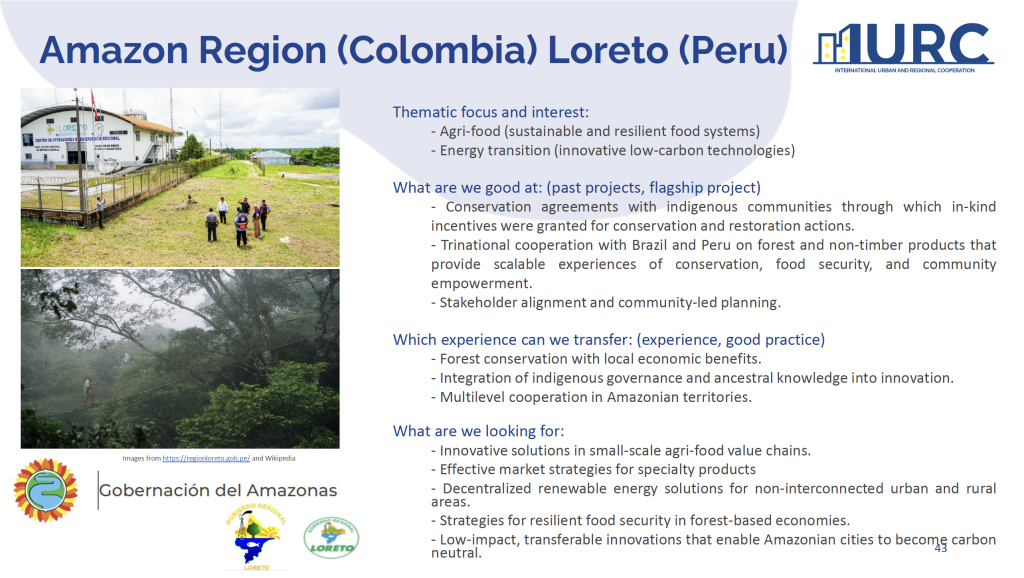
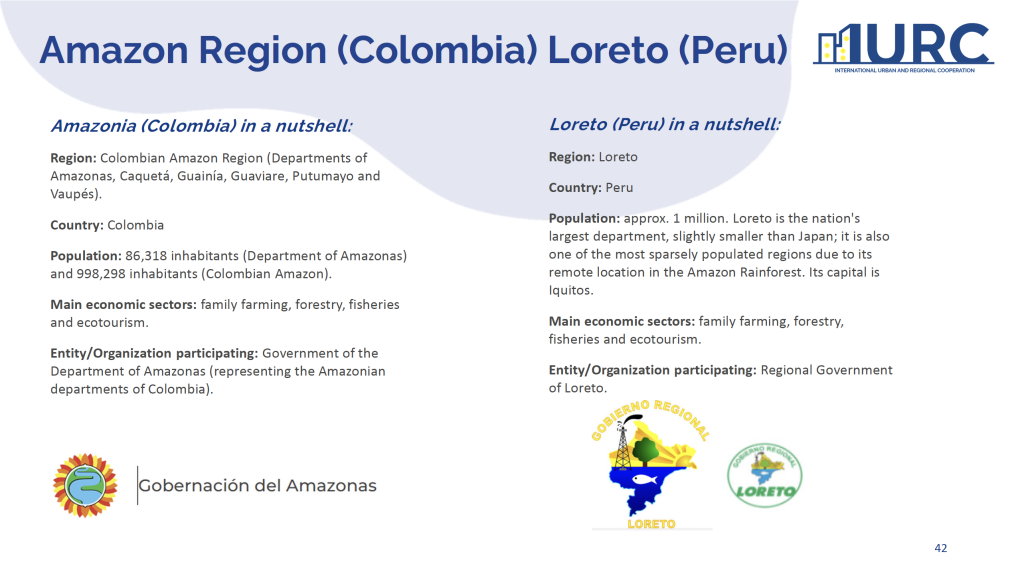
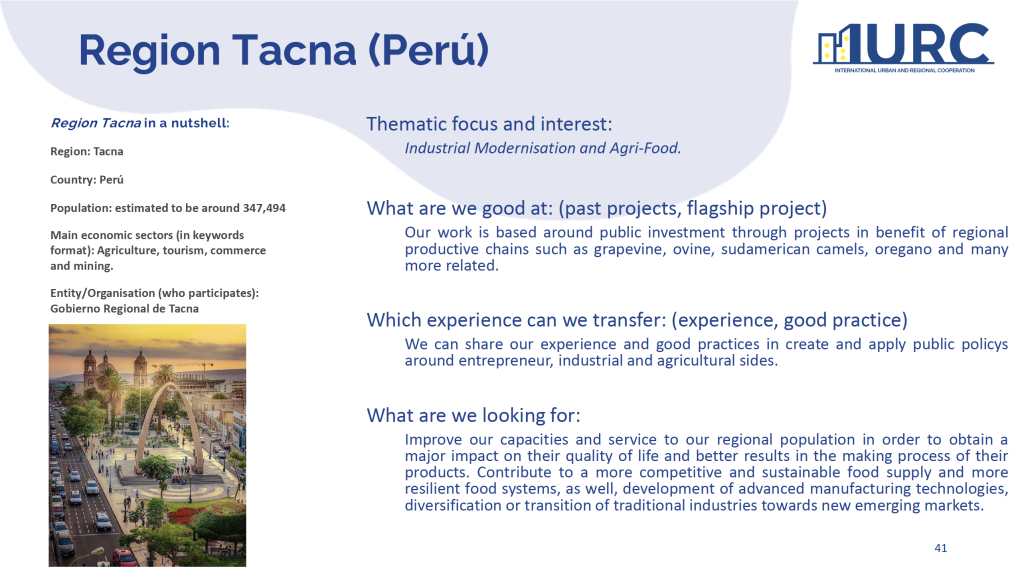
How IURC Works: From Clusters to Partnerships
Thematic Webinars (Sept–Oct 2025): Regions present challenges and opportunities.
Breakout Sessions (Oct 2025): Define pilot actions and cooperation roadmaps.
Advanced Cooperation Visits (ACVs) (March 2026+): Funded study visits for joint projects.
Outputs:
Memoranda of Understanding (MoUs)
Pilot actions (e.g., circular economy hubs, digital training programs)
Policy guidelines for scalable solutions.
Get Involved!
Regions: Share your best practices or seek partners for pilot projects.
Businesses/NGOs: Explore cross-border collaboration in agri-food, energy, or digitalisation.
Researchers: Contribute to innovation ecosystems and policy design.
Contact the Cluster Managers:
Industrial Modernisation: Francisco Rocha
Agri-Food: Kirsti Hagemann
General Coordination: Silke Haarich
“Innovation thrives when regions learn from each other. Whether you’re a policymaker, entrepreneur, or researcher, your expertise can shape the future of EU-LAC cooperation.”
